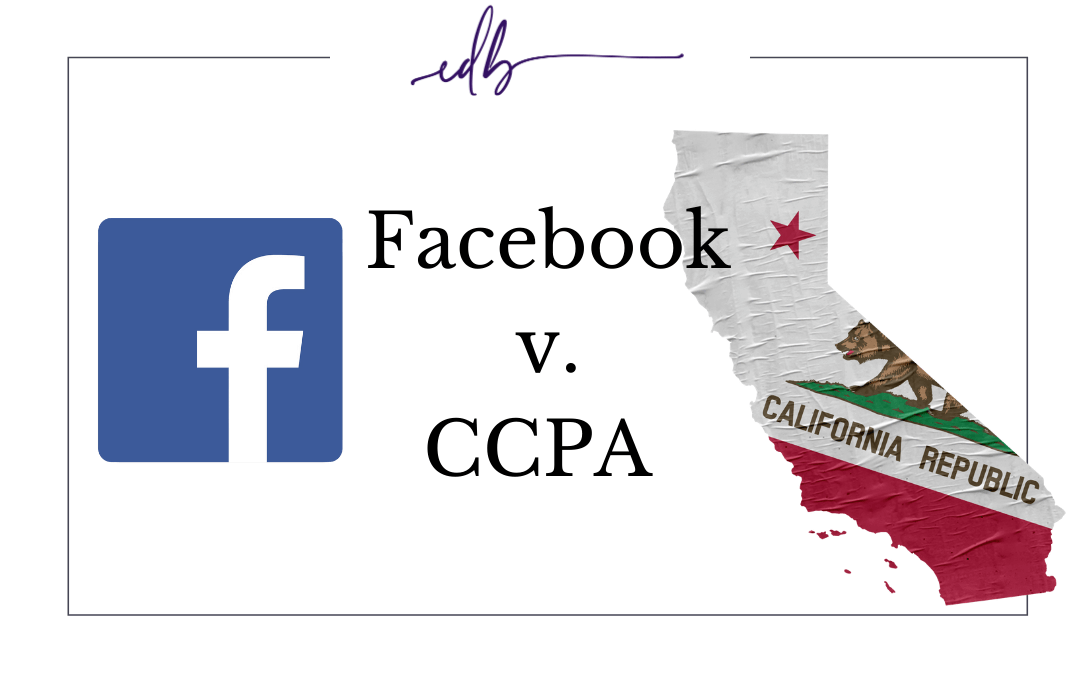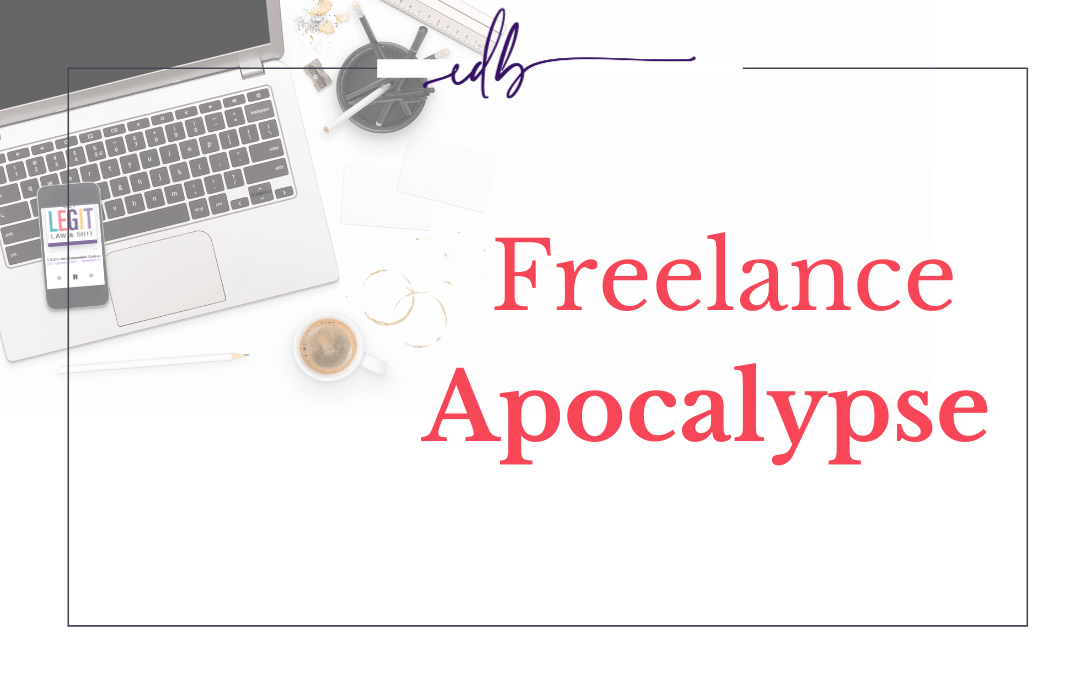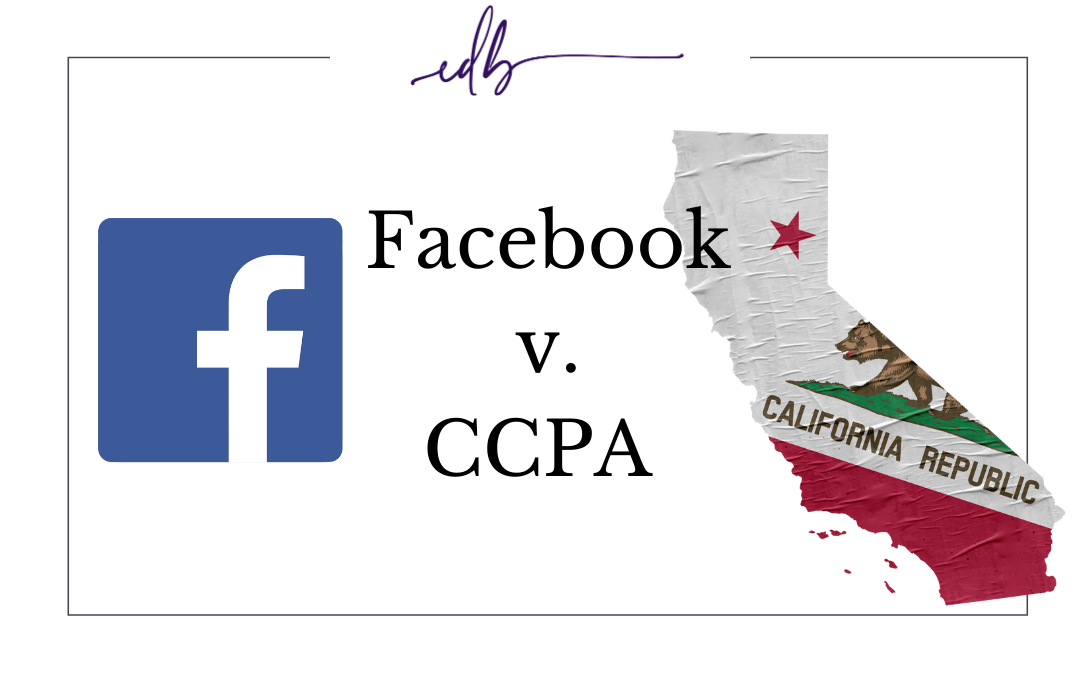Law Nerds Blog - Trending Topics 
Facebook v. CCPA

Written By:
Emily D. Baker

Facebook v. CCPA
After everything Facebook went through with the Cambridge Analytica scandal and the massive lawsuits currently pending over violations of GDPR, Facebook decided that California’s new privacy law, CCPA, just doesn’t apply to them…really Facebook??
So you are asking me…Emily, what is CCPA..sorry. Let’s get to that. The California Consumer Privacy Act or CCPA went into effect in California on January 1, 2020. However, the State of California is giving companies a 6-month implementation ramp so enforcements and lawsuits haven’t started flying just yet (but they will…..). To understand some of the criticism of this law is a steaming hot mess, you need to understand a little of where it comes from.
California’s Propositions… a whole new world.
California is one of a few states that has a ballot proposition system. Every election year anyone with enough money (ahem…signatures), can include a proposition that can be voted into law. I won’t even get started on some of the poorly written messes to come out of the propositions. The Consumer Privacy Act of 2018 was backed by a real estate developer and gained enough support and signatures to be included on the ballot, however, the proposition was fairly strict and restrictive. Naturally, the California legislature decided to rush through the California Consumer Privacy Act of 2018, fondly referred to as CCPA. The legislature rushed this through in exchange for the proposition being dropped off the ballot.
This agreement has left consumer groups frustrated that the bill doesn’t go far enough and business frustrated with the most restrictive and unclear consumer privacy law in the country. Don’t worry though, at least 10 other states are considering similar legislation. Eventually, I believe there will be a federal law similar to GDPR so businesses aren’t complying with different privacy laws in different states.
Right…so what is CCPA actually. Well, it regulates how companies can collect, distribute, pass along to other companies and allows consumers more control to see and direct what happens with the information companies do have. To that end, Facebook does have a form for California residents to request what data Facebook has on them or to remove that data, so that’s something.
Under CCPA companies who are required to comply must, and this is my favorite part, must place a link on the front page of their website that says “do not sell my personal data”. That is where residents can access the data that companies have about them. Proponents of CCPA are optimistic that when companies implement CCPA they will think its such a pain in the ass to separate California residents from everyone else that they will just allow everyone accesses to their data.
What Businesses Does CCPA Apply to?
There are of course rules about what companies are required to comply;
- Businesses that make more than $25 million in annual gross revenue.
- Businesses where more than 50 percent of their revenue comes from the sale of California residents’ data.
- Businesses who process the personal data of more than 50,000 California reside.
The problem comes in with this pesky little word ‘sale’, Facebook contends that as a company it does not sell data. In Facebooks Q4 earnings from 2019, the company made 16.9 Billion (Yes with a B), in ad revenue. So how does CCPA define ‘sale’…
So what's a sale?
CCPA defines Sale as: ‘“Sell,” “selling,” “sale,” or “sold,” means selling, renting, releasing, disclosing, disseminating, making available, transferring, or otherwise communicating orally, in writing, or by electronic or other means, a consumer’s personal information by the business to another business or a third party for monetary or other valuable consideration.” -CCPA
Given that definition of sell, it’s hard to comprehend that Facebook who made over 16.9 Billion on selling ads doesn’t ‘sell’ data. Facebook argues that because they are using the Pixel they are not selling data. However, the ads are valuable because of the DATA! Business are buying ads because they can specifically target their ideal individuals.
So where we stand now Facebook is arguing that they have basically complied and that the law doesn’t really apply to them anyway. I would love to hear your thoughts on this level of BS.…let me know your thoughts on Instagram @TheEmilyDBaker.
If you want to hear more of my thoughts on Facebook v. CCPA Episode 16 of The Emily Show covers it! Don’t forget to drop a review if you love it.
LAST UPDATED: January 22, 2020
Keep Reading

The Sunday Riley FTC Settlement
There is something I love about taking a bit of stock in what the year held, and what I am looking forward too. If you follow me around social you may know that I am a huge planner nerd. I love monthly, weekly and yearly planning. I love sitting down and plotting out the course. This also makes looking back a lot of fun, and a bit easier.

Trademark, Cocaine Santa & Santa's Sack.
From Santa's Sack to Cocaine Santa, the holiday's best Trademarks. It's funny and kinda dirty…depending on where your heads at.

California's Freelance Apocalypse has begun.
A Lawyers take on California's changes to Independent Contractor laws, how it affects the freelancer market and why this matters to everyone because multiple states are consider
Law Nerds Unite
Craving more stories just like this one? Join the Law Nerds community on Patreon.

Law Nerd Shop
Check out the shop and rock your Law Nerd pride with mugs, shirts, hoodies, stickers, and more.

